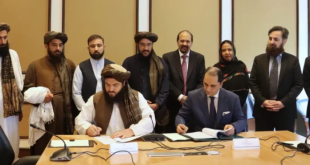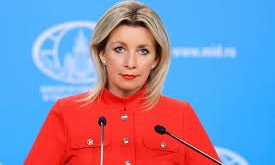KABUL – Germany has issued a sharp clarification of its stance on Afghanistan’s Taliban-led interim government, declaring that no diplomatic recognition will be granted “in the near future”—despite expanding technical contacts and recent cooperation on controversial deportation flights.
Speaking from Moscow, Germany’s ambassador to Russia, Géza Andreas von Geyr (also known as Gräf Lambsdorff), directly criticized the Taliban’s treatment of women and girls, saying this alone was enough to prevent political recognition.
“If you look at the current governing system in Afghanistan, especially the situation of women and girls, it is evident that we have a difference of opinion with Russia,” he said, referencing Moscow’s recent decision to become the first country to recognize the Taliban.
Germany, he added, sees no need to follow Russia’s lead, stressing that technical coordination with the Taliban continues through pre-established channels—without any involvement from Moscow.
“Russia is the only country so far to take such a step, and by doing so, it has distanced itself from the international consensus,” he said.
Berlin’s firm stance comes despite growing behind-the-scenes engagement. Earlier this month, Germany allowed Taliban-appointed diplomats to operate consular offices in Berlin and Bonn to serve Afghan citizens. At the same time, Germany carried out its second deportation flight to Kabul, sending back 81 Afghan men labeled as criminal offenders. The deportations were conducted with Taliban cooperation, albeit indirectly via Qatari mediation.
Still, Chancellor Friedrich Merz and senior cabinet ministers have insisted that these actions do not constitute recognition.
“We’re not legitimizing the Taliban. These are operational contacts, not diplomatic ones,” said Interior Minister Alexander Dobrindt, who is now pushing for a direct deportation deal with Taliban authorities to streamline returns of rejected Afghan asylum seekers.
The dual-track policy has stirred debate in Germany, particularly among human rights groups, who accuse Berlin of normalizing Taliban rule while claiming moral distance. Critics argue that deportation agreements and consular arrangements risk lending legitimacy to a regime widely condemned for its crackdown on women, free speech, and minorities.
Political analyst Wais Naseri offered a regional perspective, noting that unlike Russia, which sees Afghanistan as part of its broader geopolitical strategy, Germany is constrained by its obligations within NATO and the EU, where recognition of the Taliban remains off the table.
Germany’s position now sits at a crossroads: while de facto engagement deepens, its de jure position remains frozen. The message from Berlin is clear—human rights violations, especially against women and girls, are a red line that no amount of strategic convenience can cross.
As the Taliban continue to push for international legitimacy, Germany’s response reflects a broader Western struggle: how to balance practical cooperation with moral principle in a post-withdrawal Afghanistan increasingly shaped by authoritarian influence.
 Afghanistan Times
Afghanistan Times




